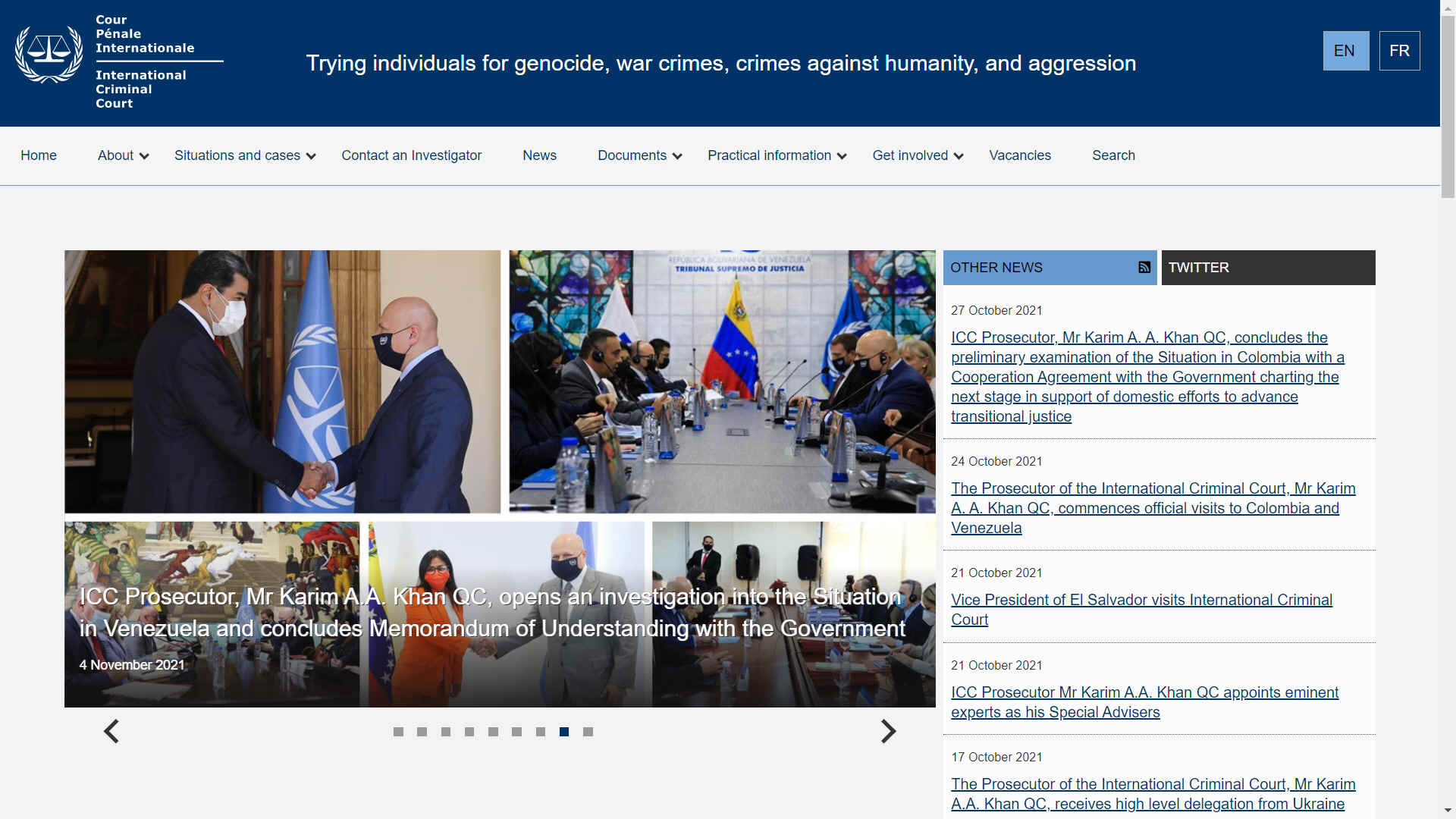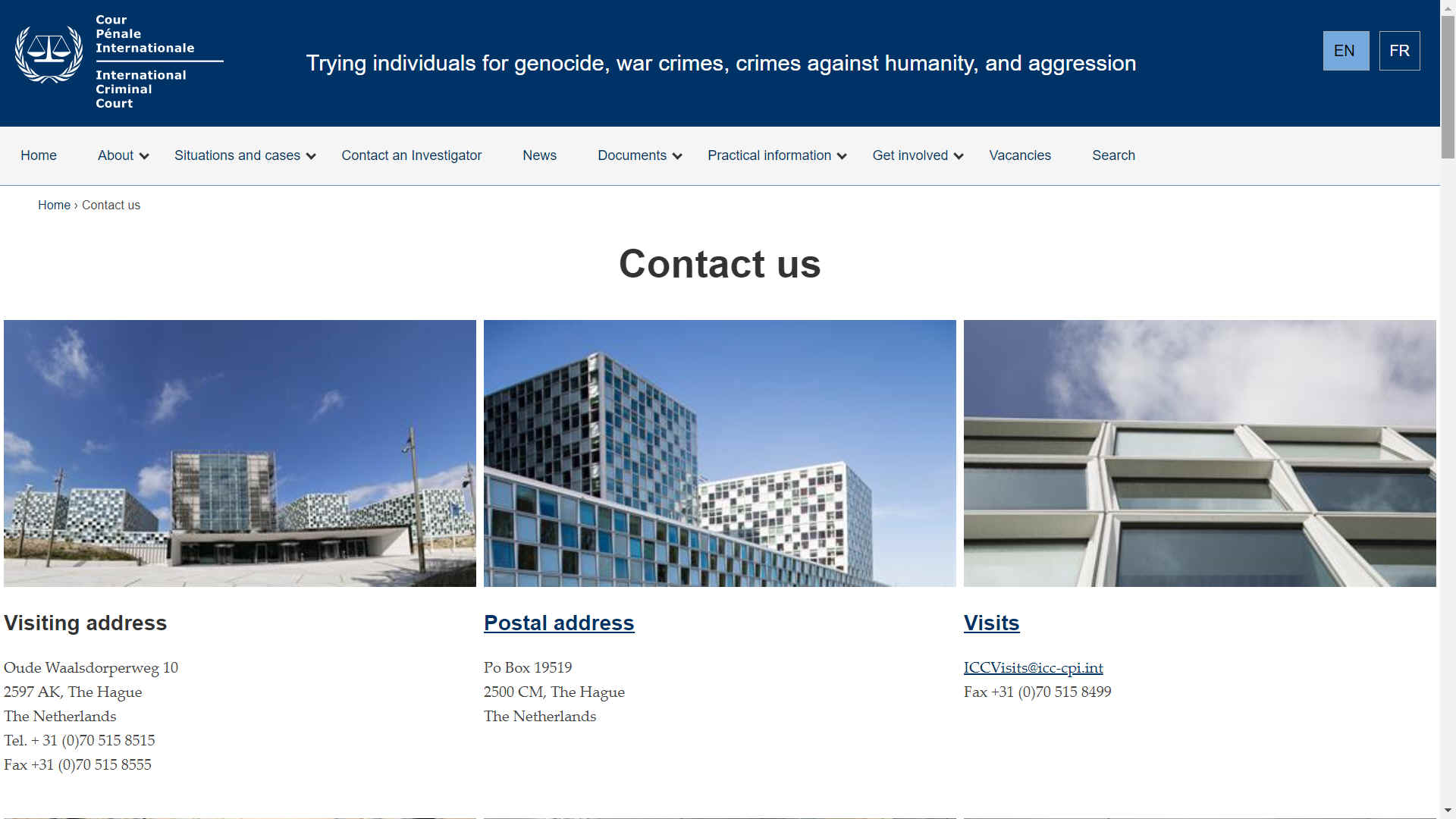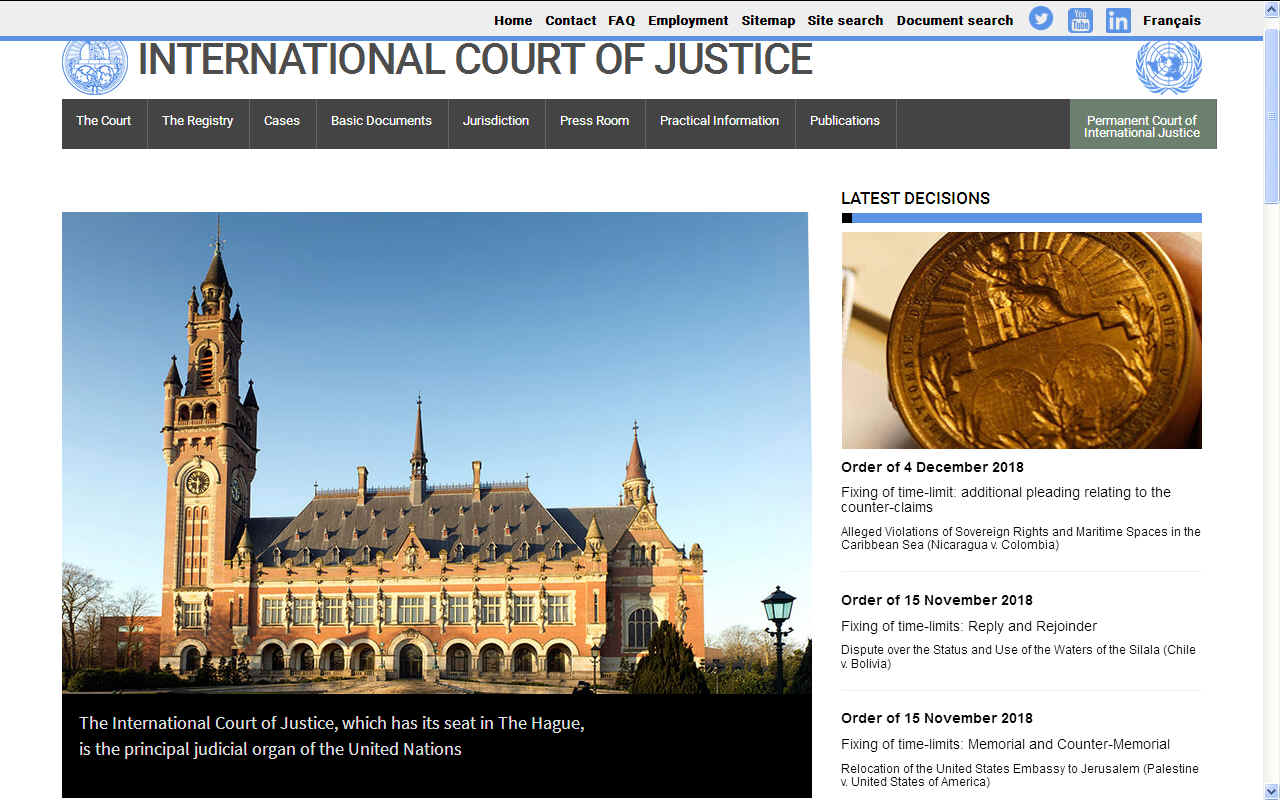|
ECOCIDE - AMENDMENTS, ROME STATUTE
Please use our A-Z INDEX to navigate this site, or our HOMEPAGE
|
|||
In view of the worsening situation and continued and continuous exploitation of the planet, in the full knowledge that such actions contribute to Global Warming, Desertification and Rising Sea Levels (by way of examples), by nations and corporations acting out of a desire for economic gain, rather than sustainable growth - and where such rape of the earth is damaging to our precious ecosystems - we (Cleaner Ocean Foundation, a not for profit organization with charitable objects) consider and would like to add support to the notion, or newly/freshly propose that it is time that the crime of Ecocide was recognised and admitted as an internationally recognized and punishable offence, by way of amendment to the Rome Statute, done in Rome on the 17th day of July 1998.
...
The Model Law – proposed amendment to the Rome Statute
THE
CRIME
To establish seriousness, impact(s) must be widespread, long-term or severe, [based on evidence visible change or scientific data].
For
the purposes of paragraph 1:
THE
ELEMENTS
The perpetrator’s activity has or will severely diminish peaceful enjoyment by the inhabitants.
The perpetrator had knowledge or ought to have had knowledge of the likelihood of ecological, climate or cultural harm.
The
perpetrator was a senior person within the course of State, corporate or
any other entity’s activity in times of peace or conflict.
By
re-opening the UN Trusteeship Council chamber (set in abeyance since
1994), Member States that are facing ecocide, and thus can no longer
self-govern, have a ready-made forum in which to appeal to and receive
aid. For instance, nations seeking a humanitarian response to flooding
and rising sea-levels could then seek the assistance of the
international community under the auspices of the Trusteeship Council,
to ensure that nearby nations are supported as they give safe harbour to
frontline States that have or about to suffer climate ecocide.
•
the protection of ecology (non-human inhabitants of a territory);
Ecocide
crime shall address all of this and was included in earlier drafts,
until it was removed in 1996.
Any
amendment to articles 5, 6, 7, or 8 of the Statute (the crimes) only
enters into force for States Parties that have ratified the amendment. A
State Party which ratifies an amendment to Articles 5, 6, 7, or 8 is
subject to that amendment one year after ratifying it, regardless of how
many other States Parties have also ratified it. (Article 121(5)) For an
Article 5, 6, 7, or 8 amendment, the Statute itself is amended after the
amendment comes into force for the first State Party to ratify it.
(Article 122(2))
...
IT IS ASSERTED THAT ECOCIDE ENCOMPASSES:
2. Change in biosphere integrity (biodiversity loss and species extinction, industrial fishing)
3. Biogeochemical flows (nitrogen and phosphorus cycles)
4. Land-system change (for example deforestation, industrial farming, mining, oil drilling, palm oil production)
6. Freshwater use
7. Atmospheric aerosol loading (microscopic particles in the atmosphere, air pollution)
8. Stratospheric ozone depletion - greenhouse gases
9.
Introduction of novel entities (e.g. oil spills, organic pollutants,
radioactive materials, nuclear
energy, nuclear weapons & waste,
nanomaterials, and micro-plastics).
The
science shows that these nine processes and systems regulate the
stability and resilience of the Earth System – the interactions of
land, ocean,
atmosphere and life that together provide conditions upon which our
societies depend.
SIX (SUGGESTED) STEPS TOWARD ADDRESSING POTENTIAL DAMAGING ECOCIDAL TENDENCIES
1. TRANSPORT: Phase out polluting vehicles. Governments aim to end the sale of new petrol, and diesel vehicles by 2040 but have no infrastructure plan to support such ambition. Such infrastructure should exceed the performance of fossil fuel filling stations, prolong EV battery life and provide power grids with a measure of load leveling. Any such system should seek to obviate the provision of millions of fast charge points to include fuel cell cars, where implementation could otherwise prove to be a logistical nightmare. This may involve international agreement as to energy storage format and statute to steer OEM vehicle makers to collaborate as to future proofing, to include green hydrogen.
Marine transport can be carbon neutral given the right policy incentives, with phased transition in specific stages such as not to unduly penalize present investment in LNG shipping and other recent MARPOL compliant IC powered vessels. Future cargo vessel should be at least in part powered by renewable solar and/or wind energy, on the road to zero carbon, making allowances for technology catch-up. A scrappage scheme might encourage fleet operators to accelerate shipping upgrades, and a fund for radical innovation that would not otherwise qualify under in-situ programmes (such as Horizon Europe) might be introduced - with fast-track, reduced, form-filling and open-loop decision making, such that applications may be tweaked rather than struck out.
Air travel powered by kerosene should attract hefty mitigation offset, where low carbon alternatives should be encouraged such as electric air transport.
2. RENEWABLES: Renewable energy should replace carbon-based fuels (coal, oil and gas) in our electricity for homes, factories, heating and transport. Coal and nuclear power plants should be phased out.
3. HOUSING: On site micro or macro generation is the best option, starting with new build homes that are both affordable and sustainable by design to replace crumbling housing stocks. Encourage building in timber to provide carbon lock from a renewable natural resource. Planning policies should be updated to outlaw unsustainable development, with harsh financial penalties for kleptocratic local authorities, especially those with a history of corrupt practices (from historic similar fact evidence files).
4. AGRICULTURE: We need to grow more trees to absorb carbon emissions from a growing population, unregulated/unrestricted air travel. New homes should be timber where practical as a priority. We should promote reductions in food waste and the eating of foods that use less energy to produce. Educate children on these matters in schools and via campaigns such as no meat Mondays, should be part of ordinary study. Polluted fish from fisheries, might be replaced with fish farmed by aquaculture inland, rather than risk carcinogens from our seas.
5. INDUSTRY: Factories should be aiming for solar heating and onsite renewable energy generation. EV parking and even service facilities should be part of new industrial estates as part of any building permissions - with subsidies or tax reductions as incentives to property developers.
6. POLITICS: - National governing bodies need to adopt rules to eliminate administrative wastages, to include scaling down spending on (showboat) war machines, increasing spend on educating the public and supporting sustainable social policies that mesh with other cultures. This includes fostering policies and making funds available to close links in the technology chain to make up for lost time. Kleptocratic empire building must cease in the search for natural equilibrium. Politics and politicians must be free of conflicts of interest and self profit. Algorithms used to combat terrorism, could be applied to politician's bank accounts, expenses claims, party political contributions, and land registries internationally, including facial recognition identification and GPS tracking to confirm movements. The aim being to foster absolute transparency and focus. Wealth taxes should be applied to the super rich, to curb their carbon footprint excesses. In the UK, politicians were taking second jobs as consultancies, depriving citizens of hours served as parliamentarians, some even conducting business from government offices and facilities, by way of fraudulent abuses of positions of trust (misconduct in public office). We feel sure the UK is not alone in this, Where other nations are steeped in bribe cultures and procurement fraud. Policy makers need to spend time paid for, actually doing the job they were elected or employed to do. Fines and bans from holding office, should be strictly applied to defeat cronyism.
CONTACTS
..
|
|||
|
|||
|
|
|||
|
Please use our A-Z INDEX to navigate this site, or our HOMEPAGE
|
|||
|
This website is Copyright © 2022 Climate Change Trust & Injustice Alliance The views, performance reviews and opinions of the Trust are protected by Articles 18 and 19 of the Universal Declaration of Human Rights.
|


